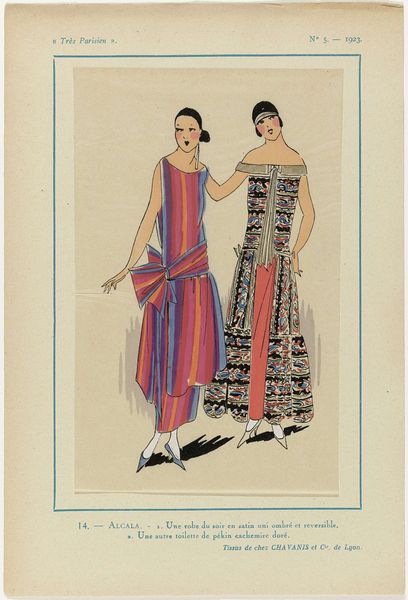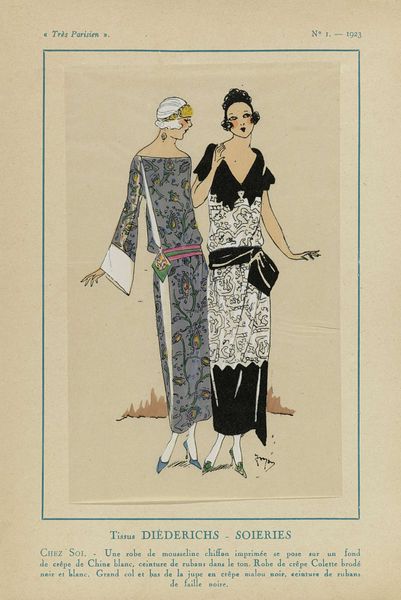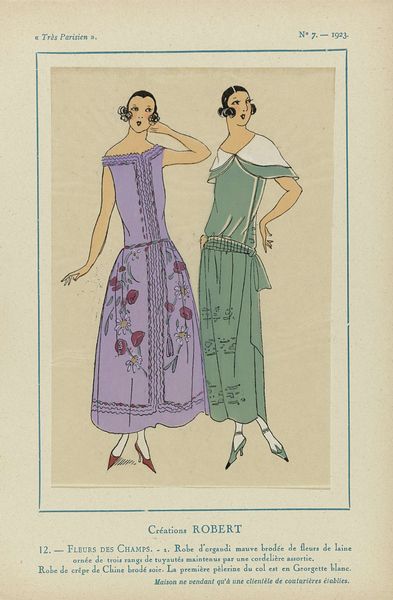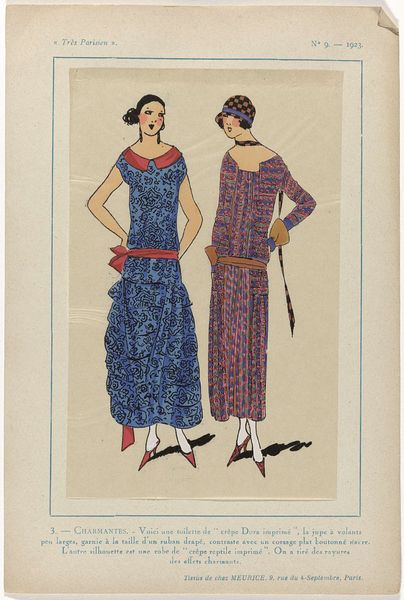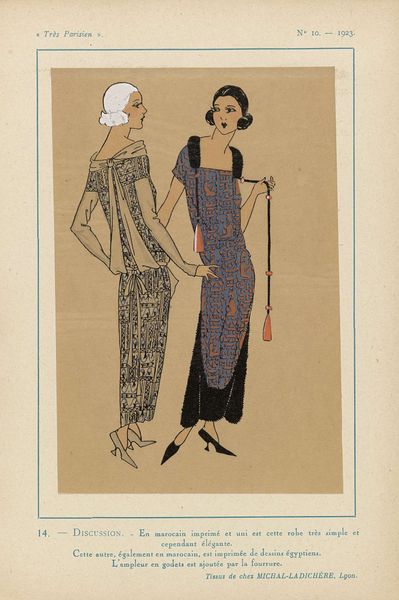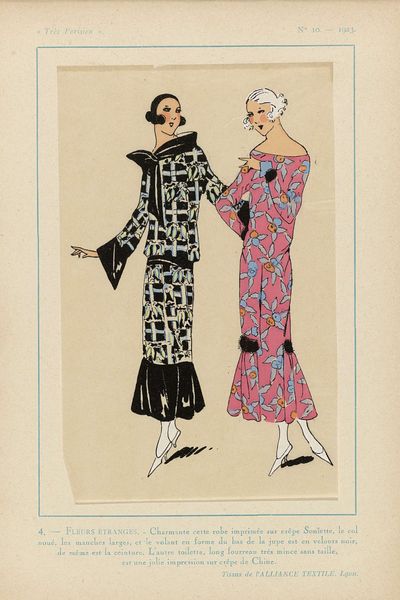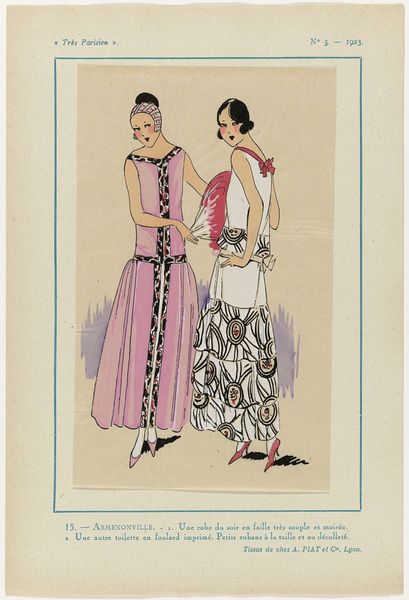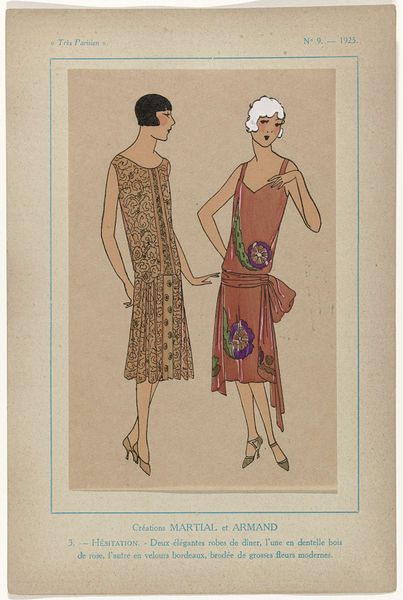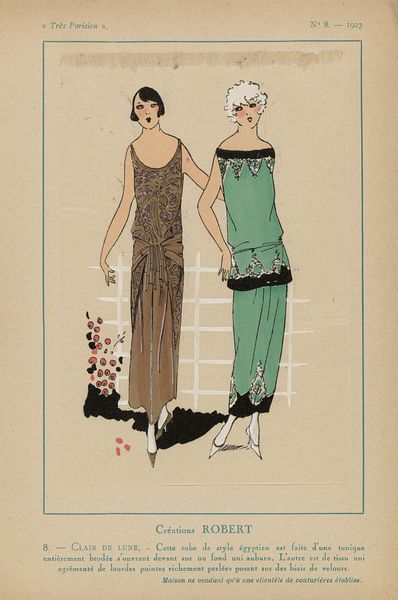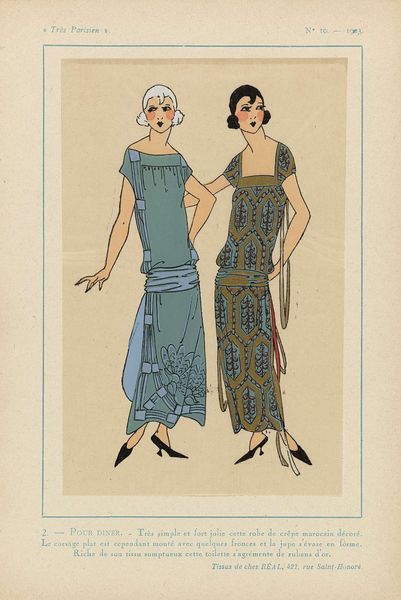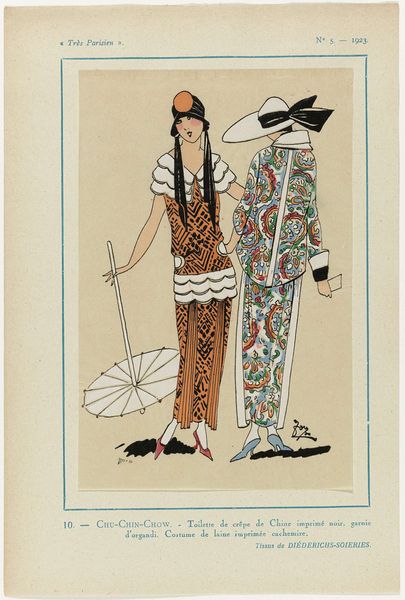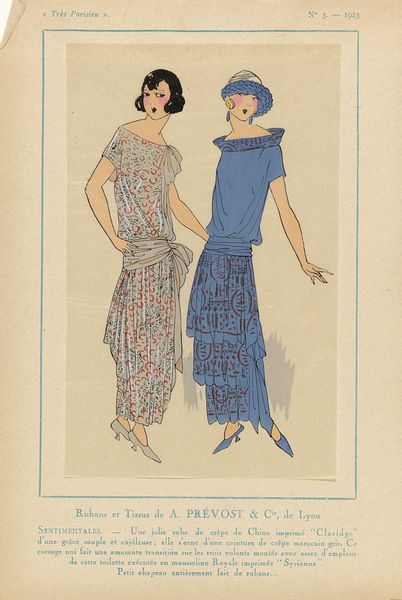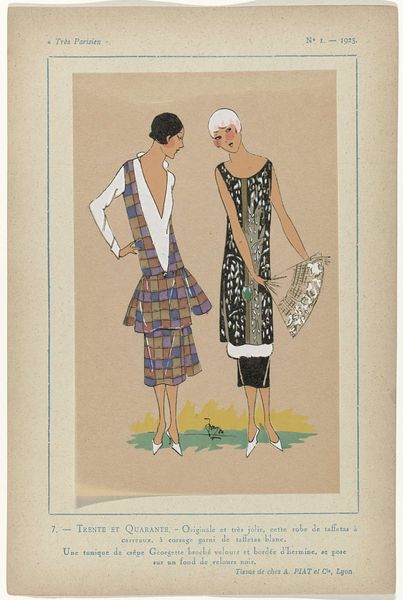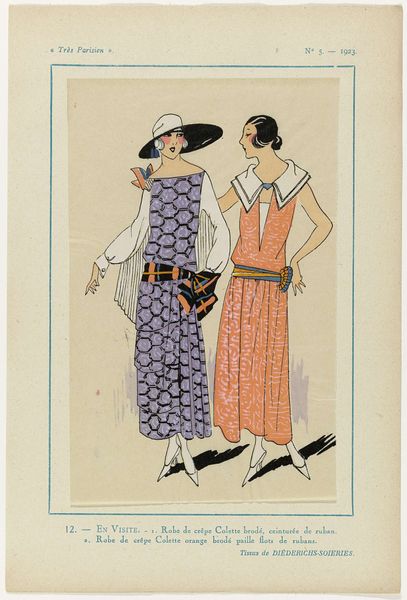
Très Parisien, 1923, No 7: 8.- TANGO. - 1. Une jolie robe de voile... 1923
0:00
0:00
anonymous
Rijksmuseum
drawing, print
#
portrait
#
art-deco
#
drawing
# print
#
historical fashion
#
cityscape
#
dress
#
clothing design
Dimensions: height 269 mm, width 180 mm
Copyright: Rijks Museum: Open Domain
This fashion plate, Très Parisien, 1923, No 7, probably made with watercolour and ink, presents two tango dresses, and an almost blueprint-like approach to colour and form. The artist’s interest lies less in rendering the textures of the dresses, and more in the shapes they create. We might notice, for instance, the orange dress on the right. See how the dark blooms are distributed in a regular pattern, almost like a wallpaper design, and how this clashes with the white stripe down the centre, which is edged with a row of buttons. The whole piece reads almost like a flattened collage, or a drawing that’s been made in separate parts and then assembled. The longer you look, the more the image seems to question what is ‘foreground’ and ‘background’. There is something in this playful approach which puts me in mind of David Hockney, but perhaps he was looking at images like this? What is clear is that art never emerges in a vacuum, but lives in an ongoing exchange of ideas across time.
Comments
No comments
Be the first to comment and join the conversation on the ultimate creative platform.
